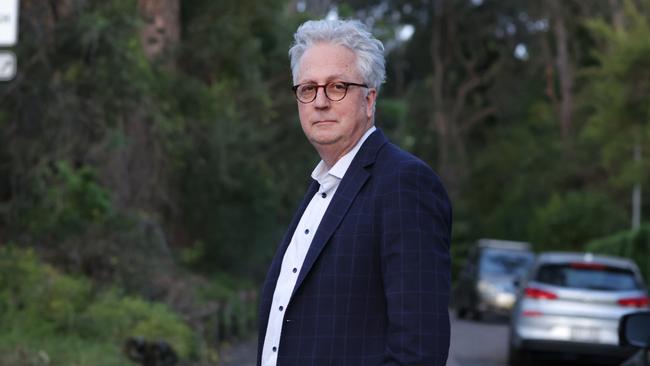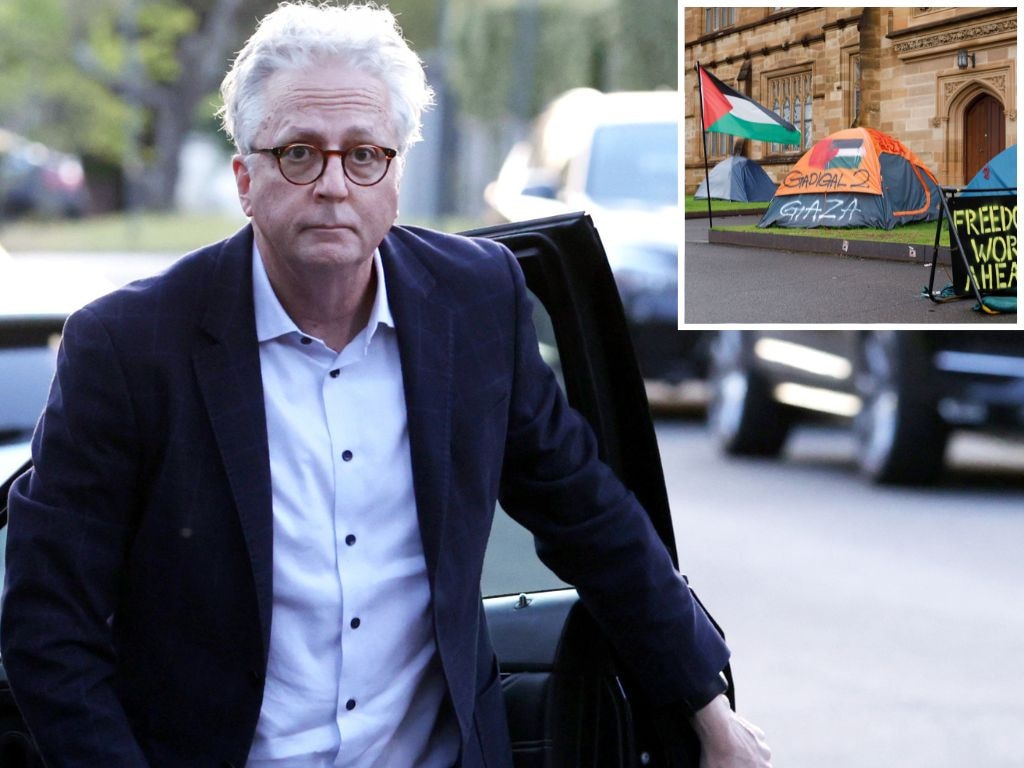Internal docs cast doubt on whether University of Sydney acted on Hizb ut-Tahrir warnings
Despite receiving multiple warnings of the extremist group’s involvement in encampment protests, internal emails between top university leaders obtained by FOI show no mention of it and that the university failed to provide any documentation otherwise.

University of Sydney officials appear not to have discussed the presence of extremist organisation Hizb ut-Tahrir at pro-Palestine encampments on campus as part of regular management meetings until the issue was publicly reported in the middle of June, despite warnings being first raised with the university more than a month earlier.
Emails among top university management figures – obtained via Freedom of Information laws and shared with The Australian – did not mention the extremist organisation until a report was published in the Nine newspapers on June 16.
The emails otherwise contain meticulous minutes of – at times – daily meetings at the university’s highest levels during the encampment protest, including warnings that the protesters were “softening sandstone” at the Quadrangle because of rain.
The emails also include detailed, frequent updates about the status of the encampment, such as an incident where a “Socialist Alternative speaker mentioned needing to accept multiple gods, resulting in heated response from religiously conservative protest members”.
The documents cast doubt on whether the university’s management acted on the early May warnings or responded only to news of Hizb ut-Tahrir’s involvement that was made public more than a month afterwards.
This is despite University of Sydney vice-chancellor Mark Scott telling NSW budget estimates earlier this month that university management had acted on those early May warnings and passed on the tip to university security, which had been in “constant communication” with NSW police.

The first mention of Hizb ut-Tahrir in emails from the university’s management was sent on Friday, June 21, five days after the Nine newspapers report, by Professor Scott’s chief of staff, Darren Goodsir.
The recipient was redacted but it appears to have been one of the people who warned the university.
“In May, I passed your concerns to our Protective Services division, who also liaise regularly with police and other relevant security agencies,” he wrote. “Earlier this week, the vice-chancellor and I met with the NSW Minister for Police & Counter-Terrorism, Yasmin Catley, along with senior police officials, to seek further information in relation to Hizb ut Tahrir in the wake of recent media reports.”
The emails catalogue urgent communications to set up that meeting with the NSW Police Minister after Hizb ut-Tahrir’s involvement was published.
Prior to that, there are no mentions in the tranche of emails of the extremist organisation or any suggestion extremist influences may have infiltrated the encampment.
However, the University of Sydney maintained its security team had been in “constant contact with police” since October 7 and said those communications occurred “often through phone conversations”.
A university spokeswoman said there was “regular contact between different parts of the university and our own security team” and the university did not have “detailed records of every interaction”, including phone calls.
The university, however, did not provide any documents that showed it acted on the early May warnings on Hizb ut-Tahrir’s involvement in the encampment. It also did not offer an explanation for how Hizb ut-Tahrir had not appeared in those detailed meeting notes prior to the information’s publication.
The spokeswoman said “no concerns have been raised with us by police or other government intelligence agencies about Hizb ut-Tahrir at any point – this includes during a June briefing with senior police officials, where we sought specifically to seek further information in relation to Hizb ut-Tahrir’s presence on campus in the wake of recent media reports”.
“Hizb ut-Tahrir is not an illegal or banned group and they regularly attend rallies and protests across the country,” she said. “The university is not itself in a position to identify organisations that may be extremist, radicalised or potentially violent.
“This identification is made by governments and police, and we are directed by them.”







To join the conversation, please log in. Don't have an account? Register
Join the conversation, you are commenting as Logout